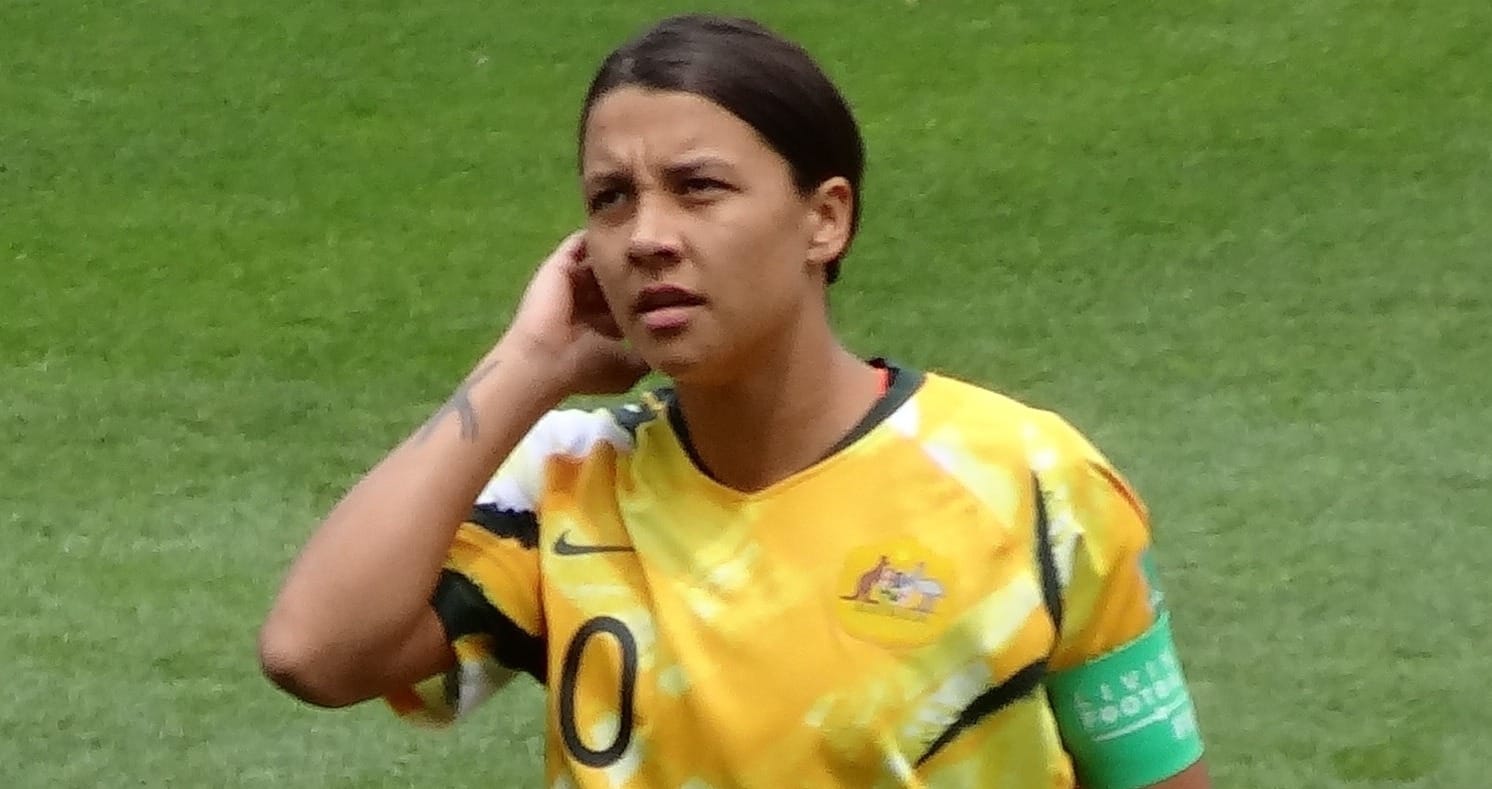
A London court has found Sam Kerr not guilty of the racially aggravated harassment of Metropolitan Police officer Stephen Lovell.
As captain of the Australian women’s national soccer team, Kerr was widely condemned when news broke she had used a “racial slur” against an officer during an altercation.
In breaking news Sam Kerr has been found NOT GUILTY of racially aggravated harassment by a London Jury following an incident in January 2023. Bodycam vision was shown to the court of Kerr calling a police officer "stupid and white". #samkerr #breakingnews #london #jury #matildas… pic.twitter.com/m5MYrTkB62— 7NEWS Australia (@7NewsAustralia) February 11, 2025
The high-profile incident sparked debate across the globe.
Initially, former Australian soccer player Craig Foster criticised Kerr’s behaviour, before retracting it and publicly apologising to her.
Meanwhile, politicians and academics argued her comments did not amount to racism given the power dynamics at play – not only is Kerr of Indian descent, but official inquiries have found the Metropolitan Police to be institutionally racist.
Historically, police have played a role in sustaining colonialism, racism, and white supremacy. Calling Kerr’s words racist overlooks that they don’t accord with an entrenched, global system of power.
What happened that night?
Kerr has maintained she and her partner – United States’ women’s national team player Kristie Mewis – believed they were being kidnapped by a cab driver.
He refused to let them out of the cab after Kerr vomited, taking them to Twickenham police station instead of their destination.
There, Mewis broke the cab window in an attempt to get out of the vehicle.
At the station, Kerr reportedly appealed to officers to “understand the emergency that both of us felt”, referencing the 2021 abduction, rape and murder of Sarah Everard by a Metropolitan Police officer.
The commissioned inquiry into Everard’s murder characterised the Metropolitan Police as institutionally racist, misogynistic, and homophobic.
However, Kerr soon faced an allegation of racism after becoming distressed and antagonistic towards the officers.
Believing they were siding with the cab driver after forming negative preconceptions because of her skin colour, she repeated: “You guys are stupid and white, you guys are f...king stupid and white.”
The captain of Australia's women's football team, Sam Kerr, is on trial for aggravated racial harassment of a police officer in the UK. She has pleaded not guilty. Video footage was played of Kerr in the police station referring to police officers of 'F'ing stupid and white'. It… pic.twitter.com/NjGPggHfaS— Tracey Holmes (@TraceyLeeHolmes) February 4, 2025
What are the legal ramifications in the UK?
Kerr pleaded not guilty to the offence of intentionally causing harassment, alarm, or distress to another by using threatening, abusive, or insulting words under Section 4A of the Public Order Act 1986, and to the racial aggravation of the offence per the Crime and Disorder Act 1998.
She faced a maximum sentence of two years’ imprisonment and an unlimited fine.
Kerr accepted she used the words “f...king stupid and white”. But it still had to be proven she intended and caused harassment, alarm, or distress to Lovell, and that the offence was racially motivated.
Initially, the Crown Prosecution Service concluded there was not enough evidence to charge Kerr.
But after receiving a request from the Metropolitan Police to review the case, and a new statement from Lovell about Kerr’s words making him feel “belittled” and “upset”, they authorised police to charge the athlete.
A jury found her not guilty after a seven-day trial.
Broadly speaking, public order offences criminalise words and behaviour that might breach the peace. Police have significant discretion to use these offences as tools to regulate people’s uses of public space.
In Australia and the UK, police have been shown to use these powers in discriminatory ways.
Kerr has conceded her behaviour was regrettable, but the charge against her is difficult to align with the purpose of public order legislation.
What does it mean for Kerr’s football career?
It’s unclear what this verdict means for Kerr’s career.
Her English club, Chelsea, is anticipating she will soon return from a long-term knee injury.
It’s possible the club was kept in the loop about Kerr’s altercation with police from the beginning, as she reportedly threatened to involve its lawyers in the body-cam footage shown at trial.
The club is yet to make a statement about the trial or verdict.
Football Australia is in a different position, though, having been blindsided by the news Kerr had been charged by police.
The fact Kerr is the captain of the Matildas, and the sport’s highest-profile marketing asset, adds layers of complexity to Football Australia’s decision-making.
Football Australia CEO James Johnson declined to weigh in on Kerr’s captaincy until her trial concluded.
It’s possible the governing body will impose a sanction, with Kerr falling afoul of clause 2.14 of its national code of conduct and ethics after being charged with a criminal offence.
Kerr could return to the pitch later this month, but has been left out of the Matildas squad for the SheBelieves Cup in the US because of her fitness.
With the AFC Women’s Asian Cup on the horizon, interim Matildas head coach Tom Sermanni no doubt hopes her recovery stays on track.
Meanwhile, Kerr is yet to play under Chelsea manager Sonia Bompastor. She could prove crucial as the club chases an elusive UEFA Women’s Champions League title, but faces competition for her spot.

This article originally appeared on The Conversation.





